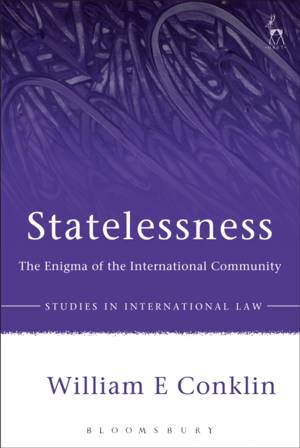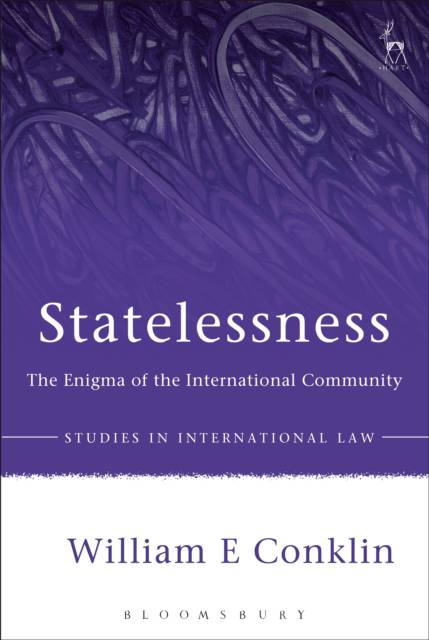
- Afhalen na 1 uur in een winkel met voorraad
- Gratis thuislevering in België vanaf € 30
- Ruim aanbod met 7 miljoen producten
- Afhalen na 1 uur in een winkel met voorraad
- Gratis thuislevering in België vanaf € 30
- Ruim aanbod met 7 miljoen producten
Zoeken
Omschrijving
'Statelessness' is a legal status denoting lack of any nationality, a status whereby the otherwise normal link between an individual and a state is absent. The increasingly widespread problem of statelessness has profound legal, social, economic and psychological consequences but also gives rise to the paradox of an international community that claims universal standards for all natural persons while allowing its Member States to allow statelessness to occur. In this powerfully argued book, Conklin critically evaluates traditional efforts to recognise and reduce statelessness. The problem, he argues, rests in the obligatory nature of law, domestic or international. By closely analysing a broad spectrum of court and tribunal judgements from many jurisdictions, Conklin explains how confusion has arisen between two discourses as to the nature of the international community. One discourse, a surface discourse, describes a community in which international law justifies a state's freedom to confer, withdraw or withhold nationality. This international community incorporates state freedom over nationality matters, risking statelessness. The other discourse, an inner discourse, highlights a legal bond of socially experienced relationships. Such a bond, judicially referred to as 'effective nationality', is binding upon all states, and where such a bond exists, harm to a stateless person represents harm to the international community as a whole.
Specificaties
Betrokkenen
- Auteur(s):
- Uitgeverij:
Inhoud
- Aantal bladzijden:
- 392
- Taal:
- Engels
- Reeks:
- Reeksnummer:
- nr. 49
Eigenschappen
- Productcode (EAN):
- 9781849469692
- Verschijningsdatum:
- 27/08/2015
- Uitvoering:
- Paperback
- Formaat:
- Trade paperback (VS)
- Afmetingen:
- 155 mm x 231 mm
- Gewicht:
- 476 g

Alleen bij Standaard Boekhandel
+ 159 punten op je klantenkaart van Standaard Boekhandel
Beoordelingen
We publiceren alleen reviews die voldoen aan de voorwaarden voor reviews. Bekijk onze voorwaarden voor reviews.








